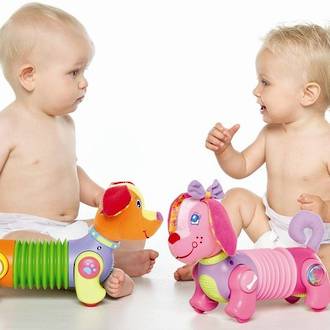Shop
01935
https://www.under5s.co.nz/shop/Hot+Topics+Articles/Toys+Books+Play/Benefits+of+play/The+plus+side+of+play+dates.html
The plus side of play dates
|
Are play dates really necessary when kids are young? We take a look at some of the benefits and developmental effects play dates can have on older babies, toddlers and pre-school kids when they catch up with their friends.
|
You might also be interested in ...
What's all the fuss about heuristic play?
Heuristic play is about playing with real-life, everyday objects and providing kids with an opportunity for open-ended discovery. When children are involved in heuristic play, they are using familiar objects in different ways. It is the process of exploring the different ways to use the objects that is important in the play.
Spotting a left-handed child
Will your child be left-handed? What are the chances of them preferring to use their left hand over their right? Statistics show that approximately 1 in 10 people worldwide are left-handed. However there appears to be no set age as to when children show a preference over using their left hand instead of their right.
join usJoin us on social media for all our latest news. |
sign upSign up and receive our latest newsletters. |
|







Are play dates really necessary when kids are young?
We take a look at some of the benefits and developmental effects play dates can have on older babies, toddlers and pre-school kids when they catch up with their friends.
6 reasons why play dates are good
1. Games, play and interaction are all vital for kids social development and have an impact on their future character.
2. Affection, empathy, negotiation and appreciating someone else’s point of view are just some of the things your little one’s starting to grasp when they’re playing with their friends.
3. By interacting with others around the same age, kids also begin to learn about perspective-taking, where they start to realise how others may have different thoughts and feelings.
4. Play dates can help your little one learn to problem solve and to develop critical thinking skills, and learn how to share and resolve disputes when things aren’t going their way.
5. They will find themselves in situations that they will encounter throughout their life which will give them a strong grounding to know how to respond.
6. Play dates help kids learn to interact with other people in a positive, healthy way.
Tell your friends
Like the article you've just been reading? Click on the Refer A Friend link at the top of the page and send the details to friends who might like to read it too.More Hot Topics for you to enjoy
- Making play dates fun
- Helping toddlers make friends
- Learning to share
Image source: aprenderabrincar.com